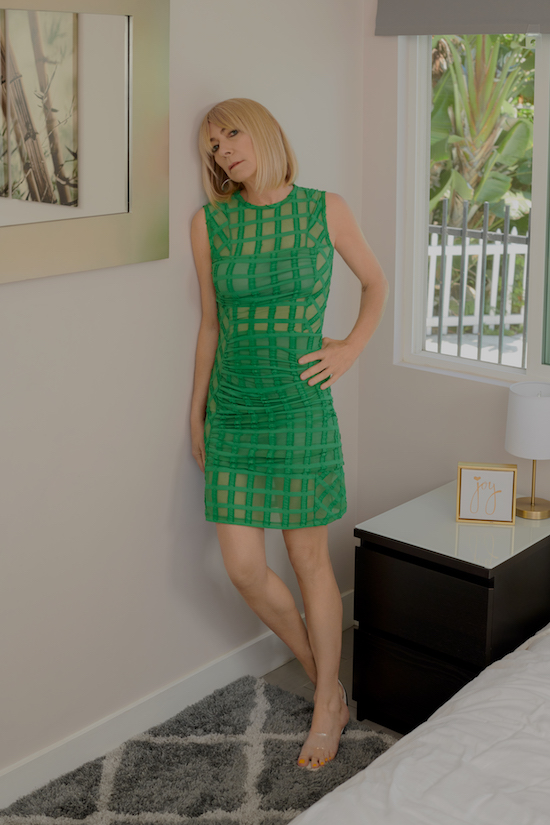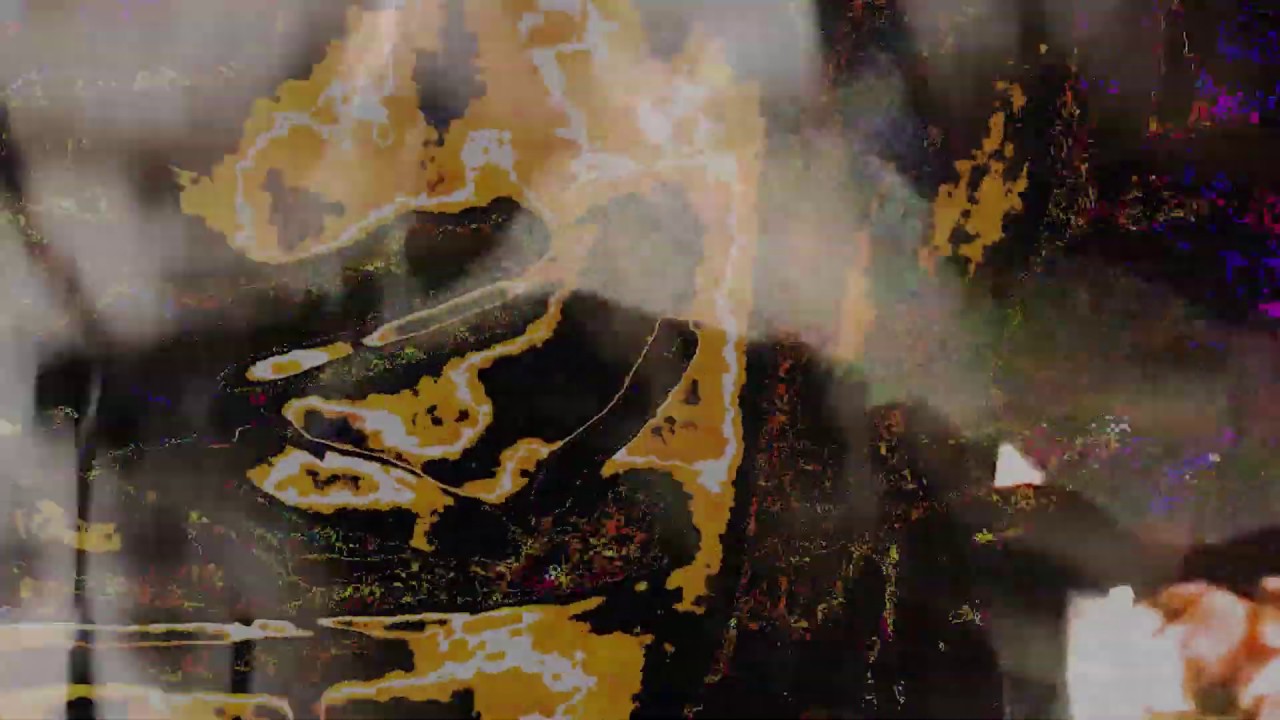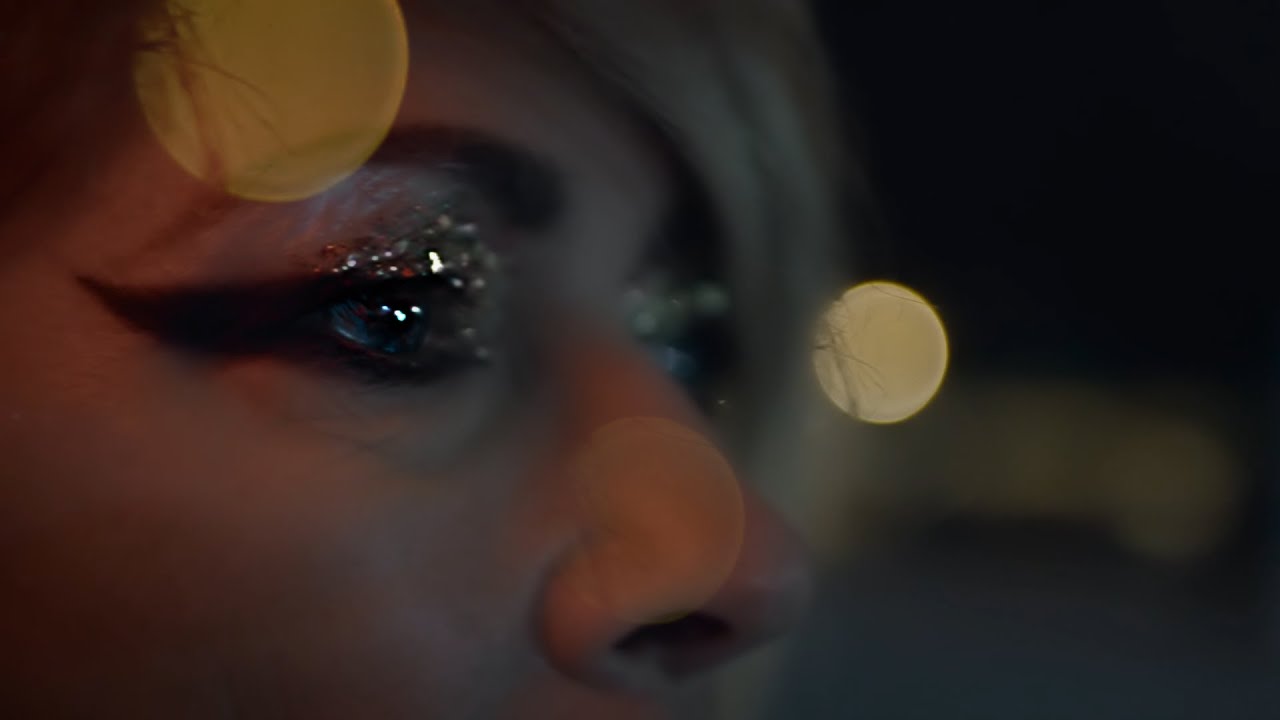“Being cool doesn’t matter that much when climate change is coming after us,” laughs Kim Gordon, Sonic Youth bassist and vocalist, prolific artist of the avant-garde, bestselling writer, successor of a New York underground pocked by Nico, Warhol, and Patti Smith – by most standards, one of the coolest women in the world.
Gordon and I are sitting in the lobby of a central London hotel, the thrum of the reception area masking the squalling police sirens outside, discussing the ongoing climate movement disruptions by Extinction Rebellion going on a few streets over. She speaks softly, ruminating in the conversation gaps, though quick to interrogate my throwaway use of the concept of “cool” to describe what’s going on outside. She adds thoughtfully: “When I watch CNN – I was glued all night from jet lag – all I see is Jane Fonda getting arrested. It’s about young white girls like Greta Thunberg – and she’s great, of course – but the media isn’t showing us the indigenous people who have been fighting climate change, the Native American people protesting for years.”
The musician and artist has been both an enduring purveyor and excavator of culture, cool or otherwise; growing up in California and graduating from the LA Otis Art Institute, she broke away for the chaotic creative New York scene and set up there, where she embedded herself as the decades-defining no-wave frontwoman of Sonic Youth with her future husband Thurston Moore, leading the 90s countercultural sound until the band’s 2011 breakup, along with their marriage. But Gordon has always evaded attempts to align her with contemporary iconography, loathe to giving interviews to promote herself, and eviscerating industry bullshit with withering, astute writing instead. In her searing 2015 memoir, Girl In A Band, she describes herself as a “lowercase rock star”.
While pop culture exploder and provocateur Andy Warhol remains a vital influence on Gordon’s art, she has in the years since Sonic Youth explored avant-rock in her experimental duo Body/Head with Bill Nace, focused once more on her visual art career with provocative, political exhibitions, and is currently consulting on a television series about a 70s rock band and co-editing a book of women’s writing on music. Gordon’s irreverent, expansive discography has, across decades, unpacked tough themes from sexual harassment to consumerist commodities even as it shattered the mainstream, and her life’s work continues to interrogate what art can do and be. It’s clear too throughout our conversation that she is most at home talking abstractly about art, culture, and the ills of capitalism, but gets most animated when discussing her daughter, the 25-year-old poet and artist Coco Moore – a “total badass,” she says. Her enduring perspective culminates in a debut solo record, the recently released No Home Record.
The album maps out some of her well-explored past themes, but ventures into dynamic new realms. For starters, it’s searingly funny, rooted in the transience of Los Angeles – her home once again after years on the east coast – and punctuated with observant send-ups of late capitalism, like the sardonically anthemic ‘AirBnB’, the spiky rundown of customised car culture and Americana fetishism on ‘Murdered Out’. With Charli XCX and Sky Ferreira producer Justin Raisen onboard, the sound hopscotches from footwork to post punk and hip hop – ’Paprika Pony’ is a startling, hypnotic trap banger you don’t see coming, the intense ‘Earthquake’ and ‘Cookie Butter’ showcasing her vocals like never before, both caustic and vulnerable. Below, Gordon discusses No Home Record, capitalist cliches, her wicked humour, and the transience of her once-again home.
As a fellow introvert I sympathise on this one – what has doing your first proper solo promo run been like? Where do you find your strength?
Kim Gordon: Talking about yourself is really hard, it’s very uncomfortable at times. A lot of people who are shy or introverted are performers. Being on stage becomes relaxing for whatever reason, you allow yourself open vulnerability – maybe it’s the lights that make you feel alone, or it’s a record you’ve lived for so long in. I don’t know if I’ve found that strength yet, totally. But I’ve always seen myself as an artist that’s making music, over everything else.
How much has the ‘artist’ versus ‘musician’ identity affected your trajectory?
KG: Playing music was just something I fell into. I did have this noise garage band in Toronto that we made in our media class, then I played with these two girls in New York when I first started. It was in these moments I first felt very free, and that’s why I got pulled into it. A lot of people in post punk didn’t intend to play music. I was influenced by The Factory, Warhol, the Velvet Underground – what was that? At that time I felt like, instead of making art or commenting about the culture from the outside, we could prod at the mainstream and make comments on the culture from within.
Why did now feel like the right time for your solo album?
KG: Why not? There was no great, majestic thought to it really… I just had some free time [Laughs]. I thought, you know, I’ve been around and I might as well do one. I’d met Justin and we had just done ‘Murdered Out’, and then everything accidentally came together. He’d asked me to sing on someone else’s project, we worked back and forth and collaged it together – a bit of bass added, some drums, I’d sent back the vocals. I loved that he was into really extreme sounds, and I really enjoyed this way of working, so I went back and did more. I’d never worked with a producer in such a collaborative way, and it became a successful experiment.
The record experiments with hip hop sounds that you’ve not really broached before. How was that?
KG: I always related to hip hop’s way working – I’m not a real ‘singer singer’, I like the idea of using spoken voice, texture, dynamics, and things like that which you find in hip hop. Building a song up from the rhythm is cool, and mixed with the attitude, it’s cool. It was freeing to explore outside rock – it’s not where the punk spirit is anymore really. It’s in hip hop, it’s in Cardi B.
I read that Justin would call you Kimye too!
KG: He’s hilarious.
Is hip hop and pop where the more progressive ideals play out now, rather than rock?
KG: I wouldn’t say pop. Rap and hip hop yes, but I guess hip hop is the new pop. Rock, as it evolved in the 60s, was the sound of rebellion and it really isn’t that now. Punk in the 70s took over briefly. Indie rock is back to pandering to the inflated sound of corporate music.
So – east coast or west coast?
KG: Chicago hip hop.
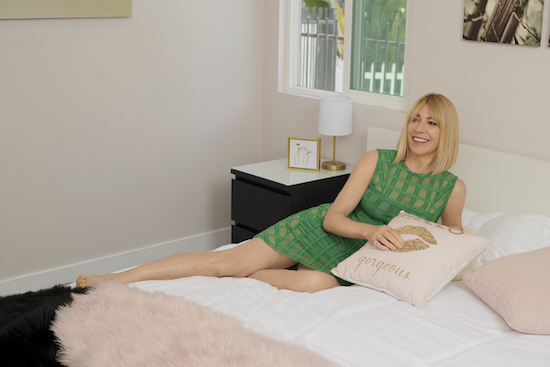
Are you a reader of west coast writers? I feel like the themes of No Home really tap into their themes. I read you were getting into Joan Didion recently.
KG: Yeah. I used to read a lot of Noir like Kem Nunn who wrote Tapping The Source, especially when Sonic Youth was touring. I love Raymond Chandler – The Long Goodbye, The Big Sleep. Rachel Kushner, Maggie Nelson too. Robert Altman movies also about LA have come to influence me – I think of LA more in terms of movies, it’s a visual thing for me.
I think there’s a common thread in that era of west coast Noir that traces the fine line between dreaminess and pure existential dread. Have you felt that since coming back to LA?
KG: Totally. Well, West Hollywood has always been kind of annoying to me because it’s so slick and plastic. LA is this voyeuristic city; it’s looking back at itself in a car mirror, the Hollywood sign is close by. There’s a lot to glean from that.
How much is your interest in the avant-garde still influencing your work?
KG: The whole record to me was an experiment. The music of ‘AirBnB’ is almost an homage to Arto Lindsay from DNA’s guitar playing.
Do you think about who is consuming the music you’re making now, and how you want people to interrogate the themes?
KG: I’m a consumer, but I’m also a sociologist. That has always influenced the kind of art I make, but I brought more of those interests into my lyrics for the first time. I got pretty close to merging my music with my art ideas. I always kept my art and music quite separate before, which I find a bit weird in a way, as this is probably the most commercial thing I’ve ever been involved with. It was a new challenge, I don’t care about alienating anyone anymore. I feel like I’ve always been solely becoming that person, but I’m a slow developer and I take my time. I don’t know if I’ll make another record, so I had to put it all on this.
When making this record were you thinking about how differently people consume music at all? Spotify playlists, YouTube algorithms.
KG: It’s all about the playlists now. It’s hard to actually find a whole album. People make more money with these long, bloated albums. When I first started I thought I was going to make a lot of 10-second songs – it’s really fucked up.
Tierra Whack’s Whack World is an excellently brief 15 minutes long.
KG: That’s very cool – can you write down her name for me? I went to a listening session of Perfume Genius’s record recently, and it is such a collaged record, long and short pieces. That’s interesting.
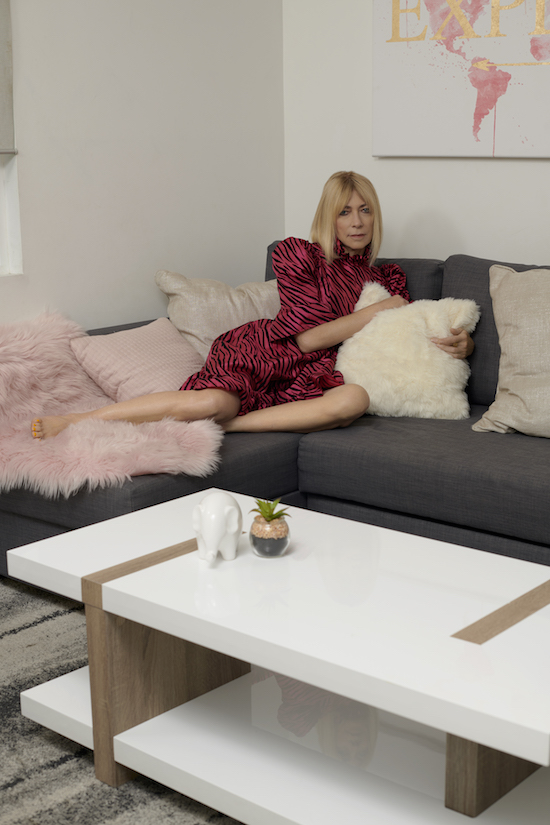
Where do you see your music fitting into this era?
KG: It’s always a funny thing putting a record out, especially now, because I’m not going to play until next year when I put a band together. It felt like putting something out into a void. I thought about this in the past with Sonic Youth too – once a record is done, you’ve mastered it, listened to it over and over, then it becomes another thing when you perform it live, the songs take on a different life. You live in them. Now, it’s feeling more abstract. I made this thing, and now I’m doing all of these interviews around the thing.
What is the song that you let yourself live in the most?
KG: ‘Paprika Pony’ is maybe my favourite song, and it’s the one that made itself. Justin’s brother Jeremiah, who is also a producer and DJ, came by the studio one day. We asked him if he had any beats we could use and he played this. I liked that it had too much space in it, the atmosphere. I immediately realised that I could easily do a vocal. It’s like a little movie to me, pretty abstract – a modern-day Adam and Eve wandering around the gardens on their cell phones.
Is a warning against the techy, twee but sinister dystopias we’re building the album’s message?
KG: It’s about the capitalism that’s at war with itself right now. It’s about the capitalism that Donald Trump has made but is actually pretty bad at, it’s bananas. I have a weird fantasy that he’s going to destroy capitalism. Consumerism will continue to eat itself until then. Everything in the culture is getting faster and faster, but you have to live a long time to see the change from the outset.
‘Hungry Baby’ continues a thread of your music from SY days that confronted sexual harassment. When you were starting out, your very presence disrupted the music industry boy’s club. Do you think music is ready for its own #MeToo moment?
KG: I think it has happened in some incidents, but rather than isolated moments, I think there’s something so insidious and dark about how sexism is so ingrained in the scene still, in its very genres. I met a guy starting something in LA recently and he said, ‘I think you look pretty good for your age.’ I looked around, like, this room full of people – did anyone else catch that? Where do you even begin to break up that boy’s club.
No Home Record feels like we’re seeing more of your wicked humour, too.
KG: It has been a necessary tool for me. Go back to Shakespeare’s comedy, where the fool is half-mad, half-wise. I mean, the director who did Joker also did The Hangover. The best comedians have duplicity. You want to create that uncomfortable space or poke the elephant in the room, whatever it is. For me it’s songs like ‘AirBnB’, where home becomes this fantasy that no-one really lives. It’s not ironic as much as it is embracing that attitude of, ‘What if everyone thought this was as wonderful as the weird, utopian advertising is purporting it to be?’ What does that really sound or feel like? Is it embarrassing to say out loud? These cliches surround us all.
I love the album promo artwork. What’s your favourite of those dumb cliches?
KG: There was one in this AirBnB where we did the photoshoot, it was written on driftwood and it said ‘Let the adventure begin’. Pick one, let it fulfil some weekend fantasy! Warhol and pop art have always influenced my thoughts on this kind of culture, non-culture – the outside is the inside, the inside is the outside.

